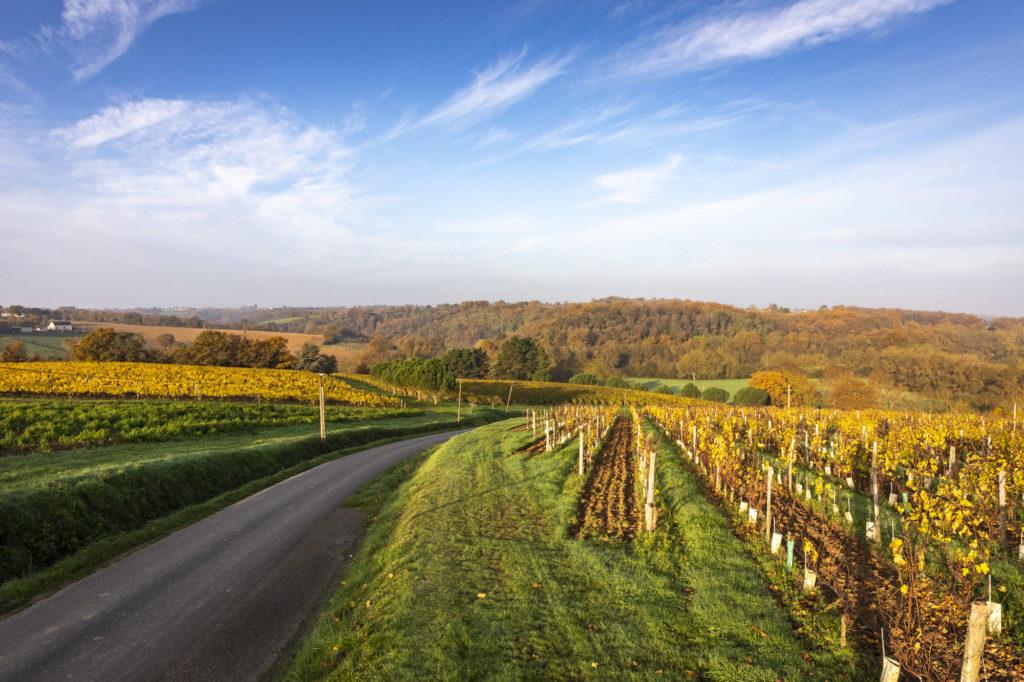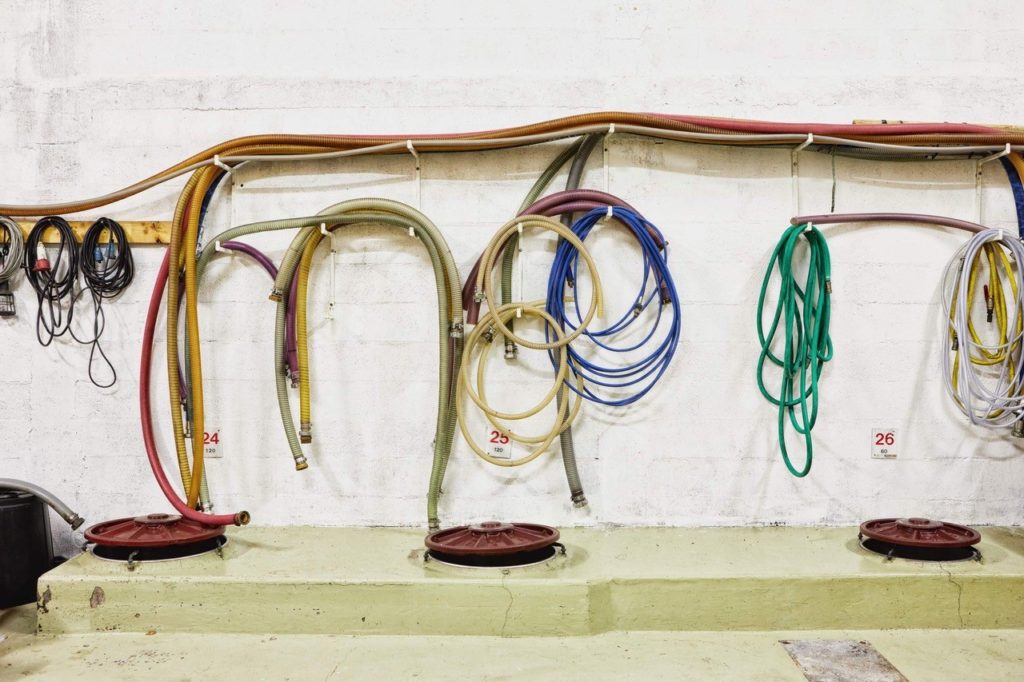Buying a wine estate is an exciting adventure that requires careful consideration and guidance.
At Ampelio, we make it a point of honour to understand your project in detail: which region to focus on, what your motivations are (investment, setting up, conversion, expansion) and what short- and long-term challenges you need to anticipate.
Every project is unique, and we take the time necessary to guide you effectively.
We support you from the very first steps: defining the project, searching for the right estate, visiting properties with winegrowers and explaining the specific features of each estate.
We are also here to answer your questions and refer you to specialised experts: solicitors, lawyers, accountants and wine financing advisors.
Our mission is to facilitate connections between sellers and buyers, ensuring a smooth and balanced transaction.

Profiles
The acquisition of a wine estate attracts a variety of profiles, each with their own motivations, ambitions and challenges. Whether it is a career move, a passionate change of direction or a strategic investment, the path to wine estate ownership is unique. Here are the four main buyer profiles that currently shape the wine estate transfer market in the Loire Valley.
Employees in the sector: The natural progression towards property ownership
Professionals in the industry represent a significant proportion of domain buyers. With their technical experience and in-depth knowledge of the sector, they aspire to take the next step by becoming owner-operators.
This profile often benefits from a smoother transition thanks to their technical skills and detailed understanding of terroirs and markets. However, entrepreneurial management, the ability to secure financing and adapting to new responsibilities can pose major challenges.
Career changes: from passion to entrepreneurship
Changing careers to embrace viticulture is a dream that more and more people are making a reality. Coming from a variety of backgrounds, these buyers approach wine with a fresh perspective and strong motivation.
However, setting up a vineyard requires extensive education and prior immersion in the sector.
The transition poses several challenges: acquiring technical skills, managing a vineyard and financing the project. Nevertheless, these new winemakers bring a fresh approach based on their professional experience.
Investors: a strategic vision for the wine industry
Wine also attracts investors, whether they are enthusiasts or seeking to diversify their assets.
These buyers may be entrepreneurs or investment companies wishing to make a name for themselves in the wine industry.
Their objectives vary: financial profitability, building up transferable assets or a desire to support the sector.
While financial contribution is an attractive option, these investors often need to partner with a property manager, as the day-to-day operation of a wine estate is complex and demanding.
Expansion and Diversification: Optimising existing structures
Finally, established winegrowers are looking to expand their estates or diversify their production. Purchasing a new estate allows them to broaden their offering, optimise profitability and achieve the scale necessary to ensure the long-term viability of their business.
This strategy also responds to the need to adapt the business to market expectations: developing high-end vintages, converting to organic farming, and setting up ancillary activities (wine tourism, events, etc.).
Each profile of a wine estate buyer is unique in terms of their motivations, skills and challenges.
Identifying your own profile and the associated issues allows you to approach your project with greater clarity and maximise your chances of success.
Ampelio supports each project leader by providing tailored advice and helping them to bring their wine project to fruition.
Key stages of the acquisition
Acquiring a wine estate is an ambitious project that requires careful preparation and in-depth knowledge of the various phases involved.
Here are the three main steps that are essential to the success of a project to set up a wine estate.
Define your project
Before actively searching, it is essential to clarify the criteria for the project:
- Which regions and terroirs?
- Which distribution channels do you want to work with?
- How much vineyard area do you want to work with?
- Which appellations?
- What type of production?
- What is the overall project in relation to your ambitions?
- Would you like to live on the estate?
- Be close to a city?
- Would you like support from the winemaker?
- Take over an existing team?
Budget and Financing
Financing is a key element of any acquisition project. You need to take into account the price of land, buildings, wine-growing and wine-making equipment, as well as ancillary costs (notaries, works, compliance with standards).
There are several solutions available to support your investment:
- Equity: personal or family.
- Specialised bank loans with terms tailored to wine-growing estates.
- Subsidies and public aid (FranceAgriMer, regional aid, European schemes).
Searching for the ideal domain
An in-depth visit, accompanied by experts, is essential to validate the potential of the estate and anticipate future investments.
We allow an average of two hours for an initial visit to tour the facilities, view the vineyards and talk with the owners.
For more information:
Points to consider before purchasing
Condition of the Vineyard and Equipment
Before acquiring an estate, it is crucial to assess the condition of the vineyard: age of the vines, grape varieties planted, average yield, soil and vine health. A poorly maintained vineyard will require significant investment in replanting or restructuring.
Wine-growing and wine-making equipment must also be inspected. Cellars, vats, tractors, presses and other equipment must be in working order. Their obsolescence can lead to unexpected additional costs.
Rentabilité et Potentiel de Développement
A wine estate is a business in its own terms. It is therefore essential to analyse its current profitability and potential for growth. This involves studying the balance sheets, turnover and margins generated.
In addition, opportunities for development must be examined: diversification of production, conversion to organic farming, development of wine tourism or modernisation of infrastructure. A vineyard with strong growth potential will represent a more attractive opportunity in the long term.
Advance to cultivation and stock recovery
When transferring a wine estate, the issue of advances for crops and the takeover of stocks is paramount.
- Advance payments for crops: These advance payments correspond to investments made during the current year for vineyard maintenance and future production (soil preparation, phytosanitary treatments, labour). The buyer must include these costs in their budget as they directly influence the first harvest after the acquisition.
- Taking over stocks: This concerns wines currently being aged, bottles in the cellar and dry materials (corks, labels, boxes). The valuation of stocks must be discussed in advance and included in the transfer agreement, as it can have a significant impact on the final purchase price.
Before any agreement is signed, we carry out a complete inventory of stocks and equipment.
For more information:
Financing and support
The importance of a solid forecast
A wine estate acquisition project relies on a detailed financial analysis. A chartered accountant plays a key role in establishing realistic forecasts that take into account investments, operating costs and profitability. Using a broker also helps to optimise financing by negotiating the best terms with banks
Surround yourself with the right advisors
A successful transfer requires appropriate support. Several experts are involved at different stages:
- Notary: Legal security and setting up the acquisition structure.
- Chartered accountant: Financial management, forecasting and tax optimisation.
- Lawyer: Legal advice on contracts, leases and business structuring.
- Ampelio: Specialist advice on wine business transfers. We also refer you to the best advisors for your project.
Aid and Subsidies
Setting up a vineyard can be supported by several financial schemes:
- European aid (EAFRD) for modernisation and ecological transition.
- National schemes such as those offered by FranceAgriMer for young farmers.
- Regional support tailored to local specificities and agricultural policies.
For more information:
Legal and regulatory aspects
Choosing the right legal structure
The legal structure of a wine estate is crucial to its management and transfer. Several options are available:
- Sole proprietorship (EI): simple to manage but with unlimited liability.
- Limited liability agricultural company (EARL): ideal for family farms.
- Agricultural Land Group (GFA) and Wine-Growing Land Group (GFV): secures land ownership and facilitates transfer.
- Agricultural Civil Society (SCEA): highly flexible but with unlimited liability for partners.
- Limited Liability Company (SARL): protects personal assets and provides a structured framework.
Regulations and standards to be complied with
Wine production is subject to several regulations:
- Obtaining a licence to operate (4-month waiting period).
- SAFER right of pre-emption (2-month waiting period).
- Compliance with AOP specifications and environmental labels (organic, HVE).
- Obligation to bring buildings and equipment up to standard.
After-sales service: getting off to a successful start
Estate management: team takeover and transition
Once the acquisition has been completed, it is essential to ensure a smooth transition.
Either the owner-winemaker accompanies the buyer for a given period of time, or the buyer takes over the existing team. Both options ensure continuity of expertise and preserve the quality of production.
It is essential to define an appropriate management strategy and identify the necessary short- and long-term adjustments.
Knowledge transfer: Commercial Strategy
The success of a wine estate depends on an effective commercial strategy.
Developing a solid distribution network, adapting its marketing positioning and considering export opportunities are key levers for ensuring the profitability of the business.
Post-acquisition support: advice and training
Surrounding yourself with professionals after the purchase is a guarantee of success.
Support from experts in management, oenology and regulations helps to optimise the estate’s performance.
Continuing education, whether in viticulture or business management, is also an asset in maximising the chances of success.
For more information:

With good planning and careful monitoring, taking over a vineyard can be a rewarding and successful experience.
Ampelio supports new owners in structuring and sustaining their operations under the best possible conditions.
